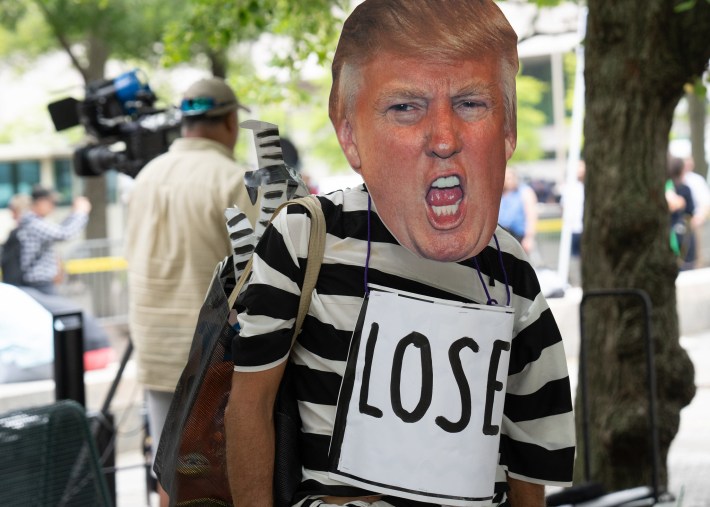Cyclists and pedestrians have had to navigate unsafe street conditions around the Lower Manhattan courthouses since the trial of alleged felon Donald Trump began two weeks ago, as cops have set up haphazard security fencing and news vans block public spaces around the clock.
Trucks from national and local news networks angle park on the sidewalk and in the bike lane on Lafayette Street a block away from the courthouse around the clock, while metal barricades restrict access to the rest of the sidewalk — and everyday New Yorkers called on the city to better accommodate people walking and cycling through the area.
“They have to do it better,” said Tribeca resident Jason Z., before he crossed Lafayette to get around the news vans.
The Manhattanite said journalists could find other legal parking spots in the area instead of gobbling up precious foot paths.
"There’s parking lots over there," he said.
Their opposite sidewalk was also blocked, partially, by combat-parked vehicles with government placards.
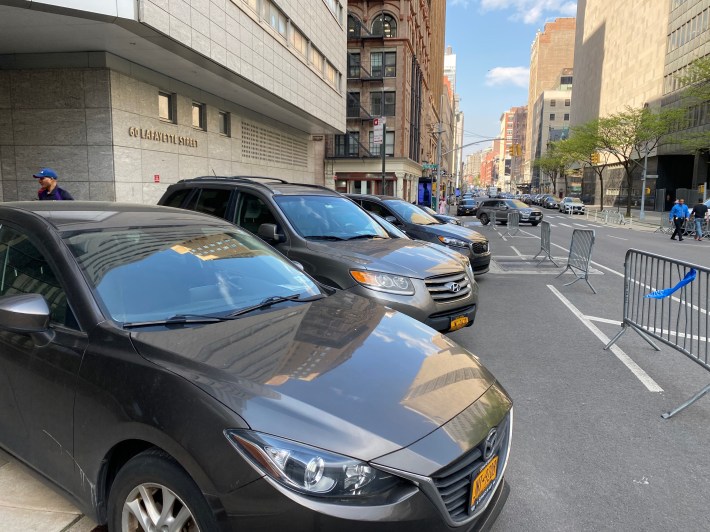
Even without the international media descending on Lower Manhattan, the area is a haven for chaotic parking thanks to government employees dumping their vehicles illegally and using placards to avoid ticketing.
The illegal parking only gets worse when the the press arrives onto the scene for high profile events. Locals said Mayor Adams needs to figure out a better strategy — especially since Trump's legal proceedings are reportedly expected to last for six to eight weeks, and the former president, who is on trial for allegedly paying off a mistress to avoid the public finding out about his adultery on the eve of an election, travels by motorcade on closed streets.
“With the trial, it is an accentuation of everything that’s wrong with the neighborhood,” said Joe Tedeschi, who lives nearby. “This neighborhood should be a prime directive for the Adams Administration, the DOT, to show that they have a scintilla of care for placard abuse, sidewalk equity, and preservation of bike lanes, for the citizens.”
Trump was not even in court on Monday, but cops still blocked pedestrian access to adjacent Collect Pond Park and surrounding pedestrian passageways.
When the former Commander-in-Chief returned for trial Tuesday, cops did set up cones for people to walk around the news vans.
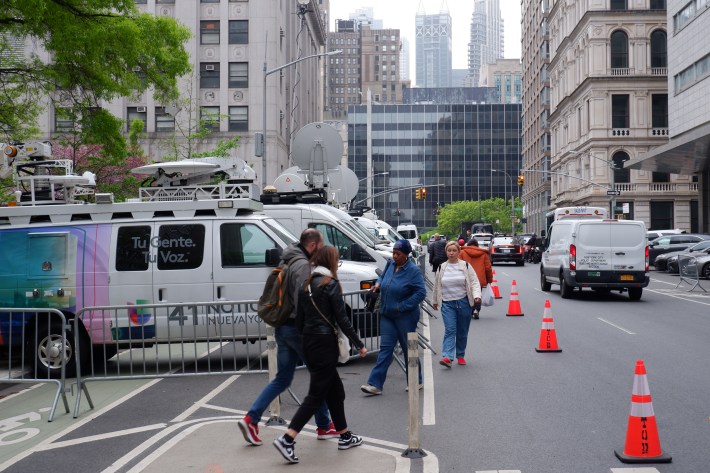
Earlier in the trial, law enforcement closed off the Centre Street car and bike lanes right outside the courthouse, pushing cyclists coming off the Brooklyn Bridge into traffic — though that portion has been open intermittently during the trial.
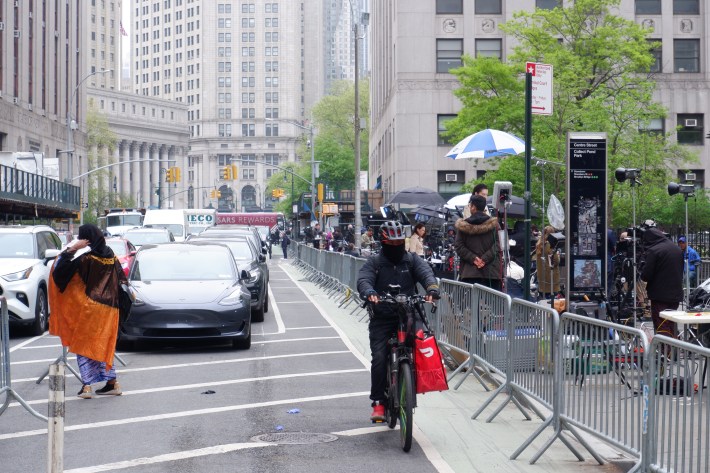
The city should not lock up the park, so people can get around the area more easily, or at least communicate the closures better, said one worker in the area.
“People have to detour for blocks,” said Gilbert Austin. “You don’t know what’s going on. … It is the lack of communication.”
A municipal employee, who declined to provide a name, agreed.
“I don’t know what they did that for,” the public servant said of the Lafayette Street sidewalk closure. “Now I’m upset because I can’t get to where I need to go.”
Cops have shown little regard for public space around the downtown area for decades. The NYPD commandeered several streets to create a Checkpoint Charlie-style campus around its headquarters at 1 Police Plaza after 9/11, though the Department of Transportation is currently looking at ways to make that area more inviting.
State court officials and judges, meanwhile, tried to kill the Centre Street bike lane for more than a year, with one rep of the judicial system likening the street redesign to the French fighting off Nazi Germany in the 1930s, but the city eventually overruled the opposition last year.
During Trump's appearances in court last year, the city directed journalists to dump their cars in Thomas Paine Park two blocks to the south, which happened again this year. The illegally parked media vehicles surrounded the "Triumph of the Human Spirit" sculpture and fountain honoring a nearby Colonial-era African burial ground.
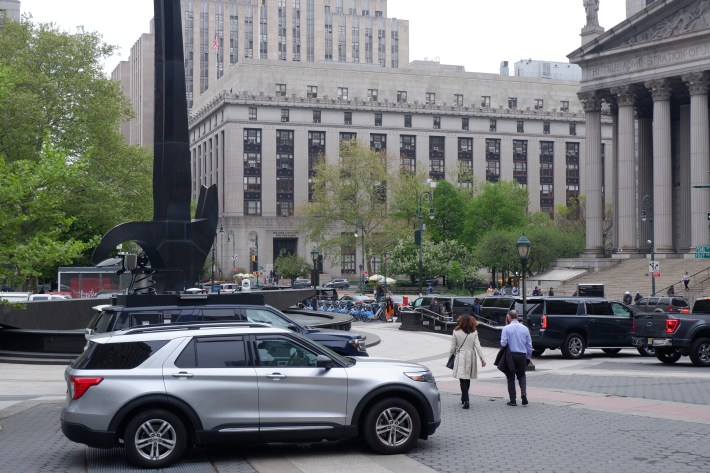
The Biden Administration — citing Streetsblog reporting — threatened to sue New York's Finest last month over its practice of blocking the sidewalks outside police station houses with angle-parked cars.
The NYPD declined to respond to questions on the Lafayette Street closing specifically beyond an April 12 press release about increased security during the Trump trial, and referred a request to the Secret Service.
However, a rep for the Secret Service’s New York field office told Streetsblog that the NYPD is in charge of street closures.
The city’s police department did not immediately respond to a follow-up request.
